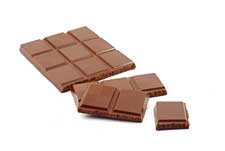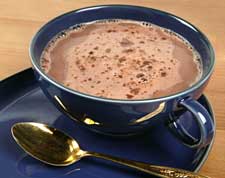Chef Tim Says...
| Salad in a Jar Construction Kit | 08/03/20 |
| Cooking: the real aromatherapy | 05/18/20 |
| Get Started Cooking with Stews | 01/09/20 |
| Paella | 07/16/18 |
| How to make your own shrimp stock | 10/09/17 |
| All "Chef Tim Says..." Columns | |
Dr. Tim Says...
| Not So Magic Rice | 04/09/18 |
| Leaky Gut Syndrome Quackery | 10/02/17 |
| 4 ways to protect your brain with diet | 07/18/17 |
| Chicken skin: to eat, or not to eat | 06/19/17 |
| Change is here | 06/12/17 |
| Medical technology | 03/27/17 |
| All "Dr. Tim Says..." Columns | |
Dr. Tim Says....
Lowering Cholesterol
There is a pretty clear link between high serum cholesterol and heart disease. When I say "serum" cholesterol I mean the blood test that your doctor performs. It's not just the total cholesterol that we care about but the lipid panel. Lipids are fats and the various types of fats that we measure are the High Density Lipoprotein (HDL), Low Density Lipoprotein (LDL) and triglycerides. The key is there is a difference between these lipids and the cholesterol we consume.
For most of us dietary cholesterol, the cholesterol we eat, has not been clearly linked with any effect on our serum cholesterol. Quite simply, it appears that consuming cholesterol is not really something that we need to focus on. For instance, one food that has never been shown to have an effect on cholesterol is eggs. That's right, eggs. In a recent article in Circulation (2008;117: 512-516) researchers found no association between the amount of eggs the subjects ate and any change in their total cholesterol, HDL cholesterol, or ratio of total cholesterol to HDL cholesterol.
 How
can you lower your cholesterol? For the most part we don't know the exact
mechanisms for lowering cholesterol. Fiber is one nutrient that does
help lower cholesterol, and it appears that the mechanism has to do with
fiber's effect on the absorption of dietary cholesterol and other fats.
You likely already know that foods that are high in fiber, especially
those with soluble fiber such as beans, oat bran, oatmeal and rye, are
clearly shown to improve cholesterol profiles. That's not to say that
insoluble fiber, such as that found in fruits, whole grain products like whole
wheat flour, whole grain breads and pastas, as well as cereal grains like rice,
wild rice and seeds, should be ignored. These guys are great too!
How
can you lower your cholesterol? For the most part we don't know the exact
mechanisms for lowering cholesterol. Fiber is one nutrient that does
help lower cholesterol, and it appears that the mechanism has to do with
fiber's effect on the absorption of dietary cholesterol and other fats.
You likely already know that foods that are high in fiber, especially
those with soluble fiber such as beans, oat bran, oatmeal and rye, are
clearly shown to improve cholesterol profiles. That's not to say that
insoluble fiber, such as that found in fruits, whole grain products like whole
wheat flour, whole grain breads and pastas, as well as cereal grains like rice,
wild rice and seeds, should be ignored. These guys are great too!
We know that good quality oils and fats that are high in monounsaturated fats change cholesterol profiles for the better, but there's more to it than the fat itself. In the case of olive oil many of the flavonoids, polyphenols and other antioxidants are what appear to affect cholesterol. These are similar to compounds in such things as chocolate, red wine and fruits that help change the composition of the lipids in the body.
There are, however, a few foods that have an effect on cholesterol that may surprise you:
1. Chocolate
 Yep, you read that correctly, chocolate. In one study 28 healthy
males between 18 and 20 years old were given 105 grams of milk chocolate
per day for 14 days. They showed a decrease in total cholesterol and LDL cholesterol.
(Clin Dev Immunol 12, 11 - 17) Interestingly, the researchers also showed
a mild drop in blood pressure. There have been numerous other studies
showing that chocolate increases the good (HDL) cholesterol. (Am
J Clin Nutr 74, 596 - 602) (J Am Coll Nutr 23, 197 - 204)
Yep, you read that correctly, chocolate. In one study 28 healthy
males between 18 and 20 years old were given 105 grams of milk chocolate
per day for 14 days. They showed a decrease in total cholesterol and LDL cholesterol.
(Clin Dev Immunol 12, 11 - 17) Interestingly, the researchers also showed
a mild drop in blood pressure. There have been numerous other studies
showing that chocolate increases the good (HDL) cholesterol. (Am
J Clin Nutr 74, 596 - 602) (J Am Coll Nutr 23, 197 - 204)
2. Cocoa
 Yum. A cup of hot cocoa! In one study 160 adults were given varying "doses" of
cocoa over a 4 week period. Blood samples were collected at baseline and four
weeks. They found that oxidized LDL concentrations decreased in the low-, middle-,
and high-cocoa groups compared with baseline. (This is not LDL cholesterol
but the oxidation process of the LDL "packet" is now associated with
artherosclerosis.)
Yum. A cup of hot cocoa! In one study 160 adults were given varying "doses" of
cocoa over a 4 week period. Blood samples were collected at baseline and four
weeks. They found that oxidized LDL concentrations decreased in the low-, middle-,
and high-cocoa groups compared with baseline. (This is not LDL cholesterol
but the oxidation process of the LDL "packet" is now associated with
artherosclerosis.)
When they looked at those participants who had higher cholesterol levels at baseline they found that their LDL cholesterol decreased and the plasma HDL cholesterol concentration increased, relative to baseline in the low-, middle-, and high-cocoa groups. The results suggest that antioxidant substance such as polyphenols derived from cocoa powder may contribute to a reduction in LDL cholesterol, an elevation in HDL cholesterol, and the suppression of oxidized LDL. (J Nutr 137, pg 1436-1441)
Page 1 | Page 2
